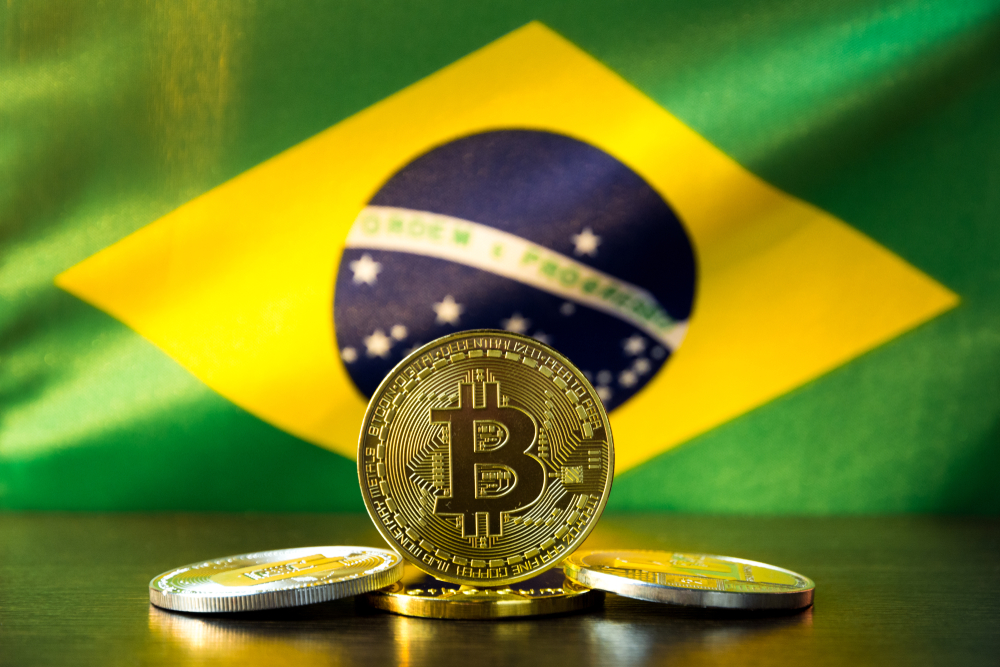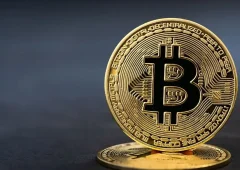Brazil’s Central Bank Dismisses Bitcoin Reserve Idea Despite Legislative Push
01.04.2025 11:00 2 min. read Alexander Stefanov
Recently, Nilton David, Brazil's director of monetary policy at the central bank, dismissed the notion of adding cryptocurrencies to the country’s foreign reserve assets, calling it an inappropriate strategy.
This comes in contrast to the U.S.’s recent move to establish a Bitcoin reserve, a decision that hasn’t been followed by other major economies. Countries like Sweden and Japan have made it clear they aren’t rushing to adopt digital assets for reserves, signaling caution in the global financial community.
At the same time, Brazilian lawmaker Eros Biondini has pushed forward a bill aimed at creating a strategic Bitcoin reserve, which would allow the country to allocate as much as 5% of its international reserves into the leading cryptocurrency.
The proposal includes robust cybersecurity measures and AI-driven surveillance for the reserve. Advocates believe the initiative could not only help mitigate potential economic risks but also elevate Brazil’s standing in the global financial system, attracting foreign investment. However, it remains uncertain if the proposal will gain traction in the legislative process.
On the flip side, Pedro Giocondo Guerra, a prominent official within the Lula administration, has publicly supported the creation of a Bitcoin reserve, calling the digital asset “digital gold.” Guerra argues that such a reserve could play a pivotal role in ensuring Brazil’s economic prosperity.
Yet, while some push for embracing Bitcoin, the National Monetary Council (CMN), Brazil’s top financial regulatory body, has taken a more cautious approach, recently prohibiting certain pension funds from investing in Bitcoin due to concerns over its inherent volatility and risks.
-
1
Bitcoin Price Hits Record Highs as Exchange Balances Plunge
12.07.2025 19:00 2 min. read -
2
Robert Kiyosaki Reacts to Bitcoin’s Surge Past $120K: “I’m Buying One More”
14.07.2025 17:00 1 min. read -
3
Has BTC Topped? Key Signals Suggest The Rally isn’t Over
15.07.2025 21:00 2 min. read -
4
Over $5.8 Billion in Ethereum and Bitcoin Options Expired Today: What to Expect?
18.07.2025 16:00 2 min. read -
5
Analysis Firm Explains Why Bitcoin’s Breakout Looks Different This Time
11.07.2025 15:15 2 min. read
Here is How Much Bitcoin Should Cost to Surpass Amazon, Apple, and Gold
As Bitcoin continues its steady ascent in 2025, comparisons with the world’s largest assets are once again gaining traction.
Bitcoin Stalls Below $120K as Markets Signal Late-Cycle Fatigue, Says QCP Capital
Bitcoin is treading water near the $120,000 resistance, with persistent bids around $116,000 offering a firm base—but failing to ignite fresh upside momentum.
Strategy Adds 21,021 Bitcoin at $117,000, Pushing Total Holdings Past $46 Billion
Michael Saylor, executive chairman of Strategy, has revealed that the company has acquired an additional 21,021 Bitcoin for approximately $2.46 billion, paying an average price of $117,256 per BTC.
Bitcoin Funding Rates Stay Elevated—Rally Ahead or Shakeout Coming?
As Bitcoin continues to consolidate above $100K, a critical market signal is flashing: BTC funding rates remain elevated, even as price action cools.
-
1
Bitcoin Price Hits Record Highs as Exchange Balances Plunge
12.07.2025 19:00 2 min. read -
2
Robert Kiyosaki Reacts to Bitcoin’s Surge Past $120K: “I’m Buying One More”
14.07.2025 17:00 1 min. read -
3
Has BTC Topped? Key Signals Suggest The Rally isn’t Over
15.07.2025 21:00 2 min. read -
4
Over $5.8 Billion in Ethereum and Bitcoin Options Expired Today: What to Expect?
18.07.2025 16:00 2 min. read -
5
Analysis Firm Explains Why Bitcoin’s Breakout Looks Different This Time
11.07.2025 15:15 2 min. read


